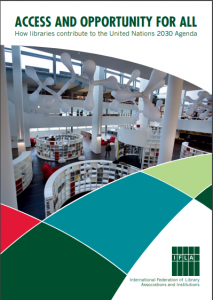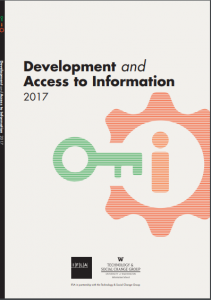Call for Proposals: RBMS 2019, Submissions due by August 3, 2018
Month: May 2018
Call for Submissions: JCLIS special issue on Libraries & Archives in the Anthropocene
The Journal of Critical Library & Information Studies is seeking submissions on the theme of libraries and archives in the Anthropocene.
Deadline for submission, June 30, 2018.
Please read the attached .pdf for details and how to submit.
Sustainability at ALA in New Orleans (June 21-26, 2018)
Put sustainability on your schedule at the ALA! The SustainRT business/membership meeting and programs will be on Sunday 6/24/2018 at the ALA Annual Conference in New Orleans .
Please use the online conference schedule to verify times and locations
SustainRT Sponsored Programs
ALA 2018
Saturday 6/23/2018
Look for the SustainRT poster on Sustainabilty and Diversity at the Diversity and Outreach Fair, Saturday, June 23, 2018 from 3:30pm – 5:00pm on the Exhibits Floor in the Ernest N. Morial Convention Center.
Sunday 6/24/2018
- 8:30 AM – 10:00 AM
The Rising Tide: How Libraries Sustain a Planet in Crisis - 10:30 AM – 11:30 AM
SUSTAINRT: Sustainability Round Table Business and Membership
Meeting -
2:30 PM – 3:30 PM
ALA Sustainability Round Table Orientation: Lighting Rounds!
Throughout the ALA conference there are many programs that address sustainability topics like green buildings, civic engagement, social justice, resilient communities and climate change. Please add a comment if you’d like to call attention to other ALA programs that would be of interest to SustainRT members.
On Hope, Civilization, and Walking Blind
If like me, you are hovering in the dark spaces between Kubler Ross’s bargaining, depression and acceptance, there is some comfort to be had in the words of Elizabeth West, in Abandon All Hope!. West boldly implores us to “abandon all hope that we can make things ‘right’ and give up the fear of what happens next.” I think I have the former part down; it’s the latter I am having trouble with.
There is not one single bolt, nut, knob or straw comprising the foundation of my day-to-day existence that does not depend upon the (collective) assumption that the future will resemble –for the most part– the present.
Many of us in the industrialized world take for granted that we will continue to enjoy all the current “conveniences” civilization offers us. Things like education, health care, prescription drugs, supermarkets, paved roads, phones, cars, buses, email, houses, etc. We assume a continuous, shared belief and agreement in such concepts as law, justice and order, amongst others. At the very least, we assume the basics: food, water, air. Each other. And we march onward, as if.
This assumption is in direct conflict with a dark undercurrent of fear that doggedly gnaws at me daily; I know very well the future does not look like the present.
But because I don’t know what the future will look like, I don’t know what to do. I don’t know how to prepare, how to get ready, how to survive. I don’t even know if survival is possible. And this not knowing– this is makes me most afraid.
If only we knew what it was to be. Will it be the guillotine or will it be prolonged suffering in a torture chamber of disease and unspeakable violence? Will we starve? Will there be animals? Will there be water? Will there be radiation sickness? Will we be alone? Will we have tribes? Will our children die in front of us? Will we die in front of our children?
All I know is all roads lead to a hard geography, a reality of scope and dimension we cannot fathom. We are truly the walking blind.
Lack of hope is an ugly thing. Surely denial would be better, “a form of fearing and avoiding the truth [that] keeps us from cracking up, giving up. It stands between us and the unbearable.” But once the curtain has been pulled back, once a sightline to the “little man behind the curtain, pulling strings” has been established, returning to the false safety of denial is impossible. It is no stretch to say that the current state of xenophobia racking our world, one in which those seeking refuge from domiciles which do not enjoy the same benefits of civilization that we do are denied entry into ours, whether by walls or by ideology, is an obvious effort to maintain the false safety of denial.
The knowledge that immigration policy means nothing in a world that depends upon civilization for the word “policy” to have meaning, the knowledge that no matter what we do, we will not achieve “long-term security and comfort… economic or racial justice or equality, [we] will not stop the ice sheets from melting or the radioactive Fukushima-spiked water flowing into the sea” is a hard one.
If you feel this way, know that I am with you. Know that like you, I go on pretending. I get up in the morning. I go to work. I put money into my retirement account. I fix up my house. I send and receive emails. I march against injustice. I go to conferences. I write. I worry. And slowly, with the help of a few others, whose bravery and kindness I cannot even begin to convey in words, I grieve. I turn, and I gaze full into the unknown face of the future – I feel, quite palpably, the knowledge that human extinction is a very real and probable outcome. And I hope, as I grieve, I can let go of a “desired end” and “the fear which accompanies any threat to it.”
By releasing all “attempts to control something which is no longer in our hands” I hope to feel the “liberating boldness, permission to live without attachment to outcomes.”
In other words: acceptance.
I am not quite there yet. I am guessing few of us are. In the meantime, we still have each other.
If you are interested in possibly joining me (and others) in an unrecorded, virtual discussion about the existential threats we face, get in touch. My email is jodishaw at mac dot com
And don’t forget you can respond publicly to this post in the comments field.
BIO
Jodi Shaw is a librarian and writer living in Massachusetts. She is the Coordinator of the ALA Sustainability Round Table.
Libraries, Development and the United Nations 2030 Agenda
Video: ALA Sustainability Round Table and UN 2030 (7:31, 2017)
Libraries, Development and the United Nations 2030 Agenda (IFLA)
 Libraries have been recognized as key institutions for achieving United Nations Sustainable Development Goals.
Libraries have been recognized as key institutions for achieving United Nations Sustainable Development Goals.
Access to Information: Target 16.10: Ensure public access to information and protect fundamental freedoms, in accordance with national legislation and international agreements.” (Transforming our world: the 2030 Agenda for Sustainable Development)
Culture, Information & Communication Technology:
Half of the world’s population lacks access to information online. In our knowledge society, libraries provide access and opportunity for all.” (Lyon Declaration on Access to Information and Development)

Universal Literacy: We envision…a world with universal literacy.” (Transforming our world: the 2030 Agenda for Sustainable Development)
Toolkit: Libraries, Development and the United Nations 2030 Agenda (Revised version – August 2017)
IFLA Statement on Libraries and Development (August 2013)